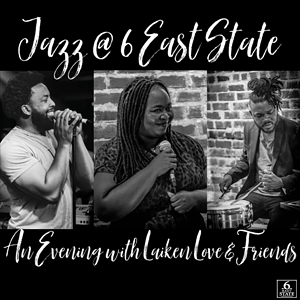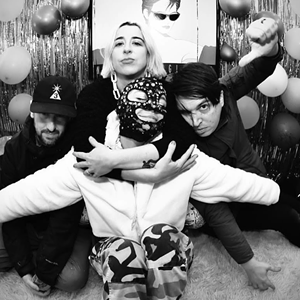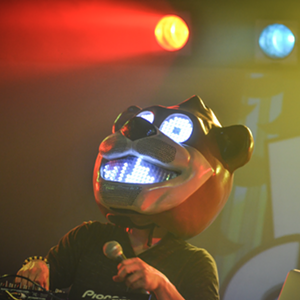The baron of blurgrass
[
{
"name": "Air - MedRect Combo - Inline Content 1",
"component": "14680855",
"insertPoint": "7",
"requiredCountToDisplay": "5",
"parentWrapperClass": "fdn-ads-inline-content-block"
},{
"name": "Air - MedRect Combo - Inline Content 2",
"component": "14680856",
"insertPoint": "15",
"requiredCountToDisplay": "9",
"parentWrapperClass": "fdn-ads-inline-content-block"
},{
"name": "Air - SVP - Leaderboard - Inline Content - 2",
"component": "16852291",
"insertPoint": "10",
"requiredCountToDisplay": "10",
"parentWrapperClass": "fdn-ads-inline-content-block"
},{
"name": "Air - SVP - Leaderboard - Inline Content - 3",
"component": "16852292",
"insertPoint": "20",
"requiredCountToDisplay": "18",
"parentWrapperClass": "fdn-ads-inline-content-block"
},{
"name": "Air - SVP - Leaderboard - Inline Content - 1",
"component": "16852290",
"insertPoint": "25",
"requiredCountToDisplay": "22",
"parentWrapperClass": "fdn-ads-inline-content-block"
}
]
The last time world-famous bassist and composer Edgar Meyer played Savannah, it was at our very own world-famous Savannah Music Festival.
This weekend, the celebrated acoustic artist returns for a one-night only appearance with another stellar string musician who has dazzled local audiences in the past: Nickel Creek mandolinist Chris Thile.
On their own, each half of this amazingly talented duo have earned more than their share of professional accolades and popular acclaim. Together, they represent both the history of their respective instruments as well as the future of contemporary acoustic music. Their continued partnership —the pair toured together with a similar show a couple of years back— helps to further smudge the lines between classical, acoustic “art” music and the more populist genres of Old-Time mountain music and modern folk. There’s even a distinct whiff of jazz-influenced jam-band grooves in their more improv-heavy pieces.
Call it blurgrass.
Meyer, who’s perhaps best known as a top Nashville session musician whose fretwork graces dozens of albums by dozens of artists both major and minor, can also lay claim to being one-third (along with cellist Yo-Yo Ma and fiddler Mark O’ Connor) of the trio that composed, arranged and recorded Appalachia Waltz, the smash crossover LP that topped the charts for almost four months back in the mid-’90s.
No slouch himself, Thile —while only in his early twenties— is already a veteran stage performer and recording artist who burst onto the national bluegrass scene as a child prodigy, and went on to become something of a combination virtuoso mandolinist and teen heartthrob in the wildly successful, Grammy-winning trio Nickel Creek.
That Platinum-selling group recently announced they were going on hiatus for an indefinite time, which should give Thile more time to concentrate on his increasingly disparate side projects — which have often leaned as much toward jazz fusion as they have low-key modern rock.
After a few missed opportunities, Edgar Meyer finally caught up with me for a brief chat, during a short break from his intense schedule of rehearsing and gigging with Thile.
I understand you’ve been writing some new material with Chris. Is that for this stretch of shows?
Edgar Meyer: Yeah. There’ll be four songs that we’re rotating in and out that are brand new. There are also six songs from our previous tour two years ago. There’s also some stuff that we’ll record later. That’s not drawn from our previous projects, it’s just for this. So, essentially, right now we have ten selections, and usually on any given night, eight of those are specifically for this project, and the rest of the music was originally created by Chris and I for other things. Sometimes together, but often not. We put those together just for these shows, and I must say that with Chris playing on some of the things that I had written or recorded in the past, it puts a very unique spin on them.
How did you and Chris initially hook up?
Edgar Meyer: Well, we all knew about him when he was growing up. He’s kind of a member of this extended community of people who sort of fall under a “bluegrass umbrella.” Everybody knows everybody, and truthfully, we all knew of him from the time he was ten or eleven. The first time he and I actually worked together was on his album Not All Who Wander Are Lost. That was great fun for me. I hadn’t done that sort of thing for a while, and I enjoyed being back in the middle of that and playing with a lot of the folk people from both his generation and from mine. At least for me, there are a lot of things that Chris is capable of doing as a musician that I haven’t really seen come out of the same person before. You know, he improvises as well as anybody can, and at the same time, I love playing complicated music with him that’s written out beforehand. Whether it’s stuff I write, or Bach, or his own material, or anything else, for that matter.
What has been the most surprising aspect of working alongside Chris?
Edgar Meyer: Um... Well, our relationship both musically and personally is continually evolving. I was unbelievably delighted early on to discover how remarkable his abilities are, and what a nice fellow he is. Those things continue to be wonderful, and since I had seen those aspects before, I’m not caught off guard by them (Laughs).
How do you two delineate your roles as collaborators — or are there no hard and fast rules in this partnership?
Edgar Meyer: In general, I would say that as much as possible, we really try to share all the responsibilities. We’re both used to running things, but I think we try to relax and let each other stay about half in charge.
You’ve worked with both Hank Williams, Jr. and Yo-Yo Ma, which seems to me to be a rather amazing stretch. Is there any common denominator that runs through every single one of your collaborations, or do many of these studio sessions and live appearances stand completely on their own?
Edgar Meyer: Well, you know, the thing with Hank Williams, Jr. was very incidental. Frankly, I actually never even talked to him. His producer called me in and I spent about an hour and played a bass solo on a song of his. It actually wound up being a hit, but there’s not too much connection there. Yo-Yo Ma is someone I grew up listening to, and did lots of work with. I admire him greatly and we’re much closer in many ways.
Looking at your prodigious output and your penchant for branching out into uncharted territories as far as your approach to your instrument goes, would it be safe to say that for you, when it comes to music, the journey is the destination?
Edgar Meyer: There is some truth to that, there definitely is. At the same time, I’d like to be trying to find something more than that. I don’t know. There’s a lot of truth to that — for me at least. I guess I don’t really have an answer for that question.
You’ve been with Sony Music for some time now, and they seem quite supportive of your varied interests. Do you imagine you’ll be content to stay with them for the long run, or do you harbor any interest in becoming a more independent artist who releases his own material?
Edgar Meyer: I have no idea. It’s both up to me and them, and I suppose we’ll take it step by step. The way that music is distributed is changing so fundamentally and so quickly, that I feel a little overwhelmed by those questions and can’t formulate quick or easy answers.
You’ve played Savannah in the past as part of our music festival. What’s your impression of our city?
Edgar Meyer: Well, it’s very beautiful. You know, my father-in-law grew up there and had an incredible fondness for it. I’m also very familiar with what a good-looking and very comfortable place to be it is. Incidentally, the bass I play belonged to George Hofer, who lives in Savannah. He was the last owner before I bought it from him in 1983. Actually my father bought it, but he bought it for me. So, my instrument has enjoyed a long sojourn in Savannah.
Does the bass enjoy coming back home? Can you tell?
Edgar Meyer: Oh, yeah. It’s very happy.
What can audiences in Savannah expect from this particular performance?
Edgar Meyer: If you are familiar with both our work, then it won’t be a surprise — but if you only knew one of us, then it might be a bit of a surprise. It’s truly a combination of the two.
The Lucas Theatre and Memorial Health present Double Bass: An Evening with Edgar Meyer and Chris Thile, 8 pm, Friday at the Lucas Theatre. Tickets range in price from $17 to $28, and can be charged online at www.lucastheatre.com, or by calling 525-5050.
























